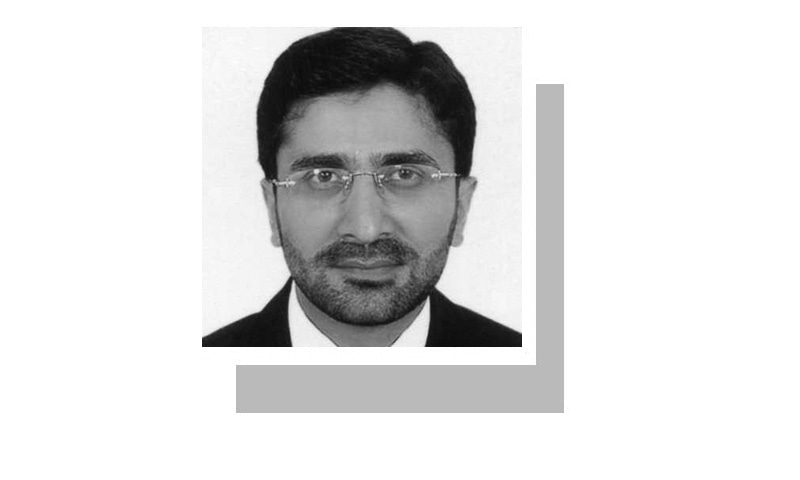
FOR several years now, renewable energy has been a key area of focus on the global energy scene, having outpaced conventional forms of energy on several counts, including investment and research and development. Since 2006, installed capacity figures for solar photovoltaic cells and wind power across the world have increased by over 5,000 per cent and 658pc respectively. These achievements are a result of well-conceived policies, technological advancements and economies of scale.
Nations across the world are actively pursuing renewable energy. EU countries are set to replace their ageing coal and nuclear power plants with renewables. Germany and Denmark, for instance, are already capable of satisfying peak-load demand from renewables under the right weather conditions.
So powerful is this drive that even the GCC countries — with their abundant oil and gas reserves — are investing in renewables. Saudi Arabia, for example, is working towards putting in place 9.5GW of solar and wind projects by 2023. There are remarkable accomplishments in our neighbouring countries too. China has become the world leader in renewable energy in investment, installed capacity and the manufacturing and export of products. India has developed 28GW of wind power and has set a target of 100GW solar energy by 2022.
Sustainable energy needs to be a key priority.
Compared to all this, Pakistan’s performance in the renewable energy field has been dismal, despite a very rich resource base. The brilliant hydropower developments of the 1960s and 1970s could not be built upon in subsequent decades. It is only in the last few years that solar and wind energy have appeared on the scene thanks to a few fragile accomplishments. For instance, the much-hyped Quaid-i-Azam Solar Park is reportedly in disarray. Considering the mandate of the Alternate Energy Development Board (AEDB) and the targets it set in 2003, wind and solar energy projects as of 2017 are a fraction of what was promised for 2007.
So what are the reasons behind such an unenviable state of affairs? Having shown an interest in renewables by establishing the AEDB in 2003, Pakistan was already a late starter. The AEDB, despite being made the focal point for promoting renewables and given a reasonable mandate and backing from the then prime minister — operated in a directionless manner.
The board also got itself into situations that drew allegations of administrative and financial irregularities. Its lacklustre performance in the initial years eroded the confidence of policymakers who decided to place it under the control of the water and power ministry in 2006-07. Ever since, renewable energy has been on the back burner.
Over the last decade, hefty investments have been made in unviable thermal power projects like rental power plants, overlooking renewable energy. A net capacity addition of less than 500MW from solar and wind projects over a period of 14 years speaks volumes for the role of the concerned stakeholders.
Moving forward, Pakistan needs to adopt renewable energy as a key priority. With their established technical and economic benefits, renewable technologies can end our energy woes and drive us towards a sustainable future. Renewables have wide-ranging strategic advantages, including but not limited to the provision of adequate and affordable energy, energy independence, environmental benefits, industrialisation, the creation of jobs and new economic activities across the whole value chain.
To realise this, however, Pakistan needs to have a coherent and goal-oriented approach. Focused and integrated efforts are required on multiple fronts. Like global trends, renewables should be on the top of our energy agenda. The national energy policy should be re-enacted, and engage the concerned state departments.
Rejuvenating the AEDB or replacing it with a new body with a clear mandate and due policy and financial support is important. Coordination between federal and provincial bodies and other institutional stakeholders should be improved. Energy market and regulatory frameworks need to be revamped to attract foreign and local investment, foster public-private partnerships, enact quality standards, and allow room for new and innovative market approaches and business models.
The wheel need not be reinvented; wide-ranging success stories and models are available from around the world. It is vital that renewable projects, both large-scale grid-connected and off-grid, are strategically conceived after due value-engineering. Also, Pakistan should capitalise on CPEC by learning from China’s experiences and industrial brilliance in renewable energy.
To change CPEC’s energy projects from thermal power plants to renewables would be a superior option. It is high time that policymakers give renewable energy its due importance, for it can propel the country towards energy and socio-economic prosperity.
The writer is the author of Energy Crisis in Pakistan: Origins, Challenges and Sustainable Solutions.
Published in Dawn, June 22nd, 2017











































